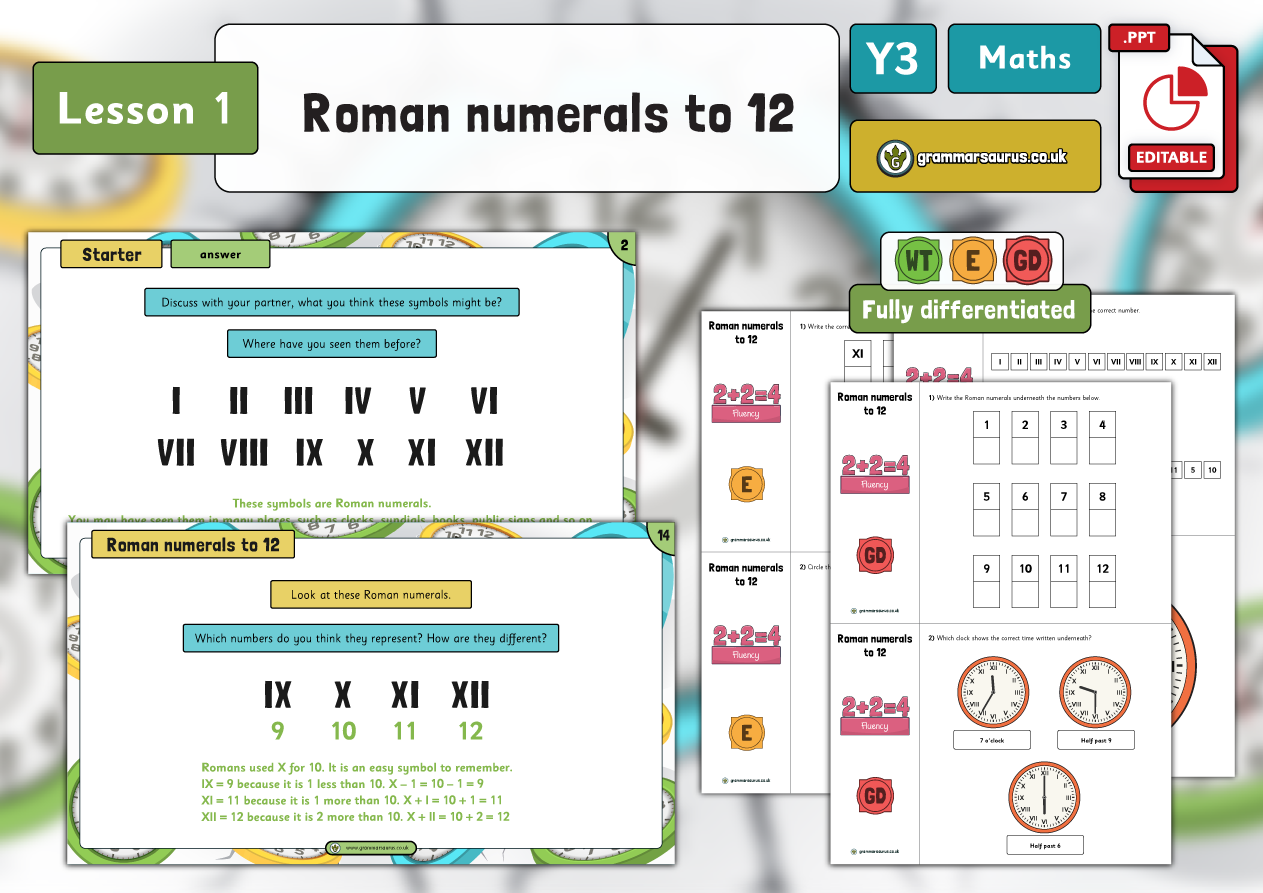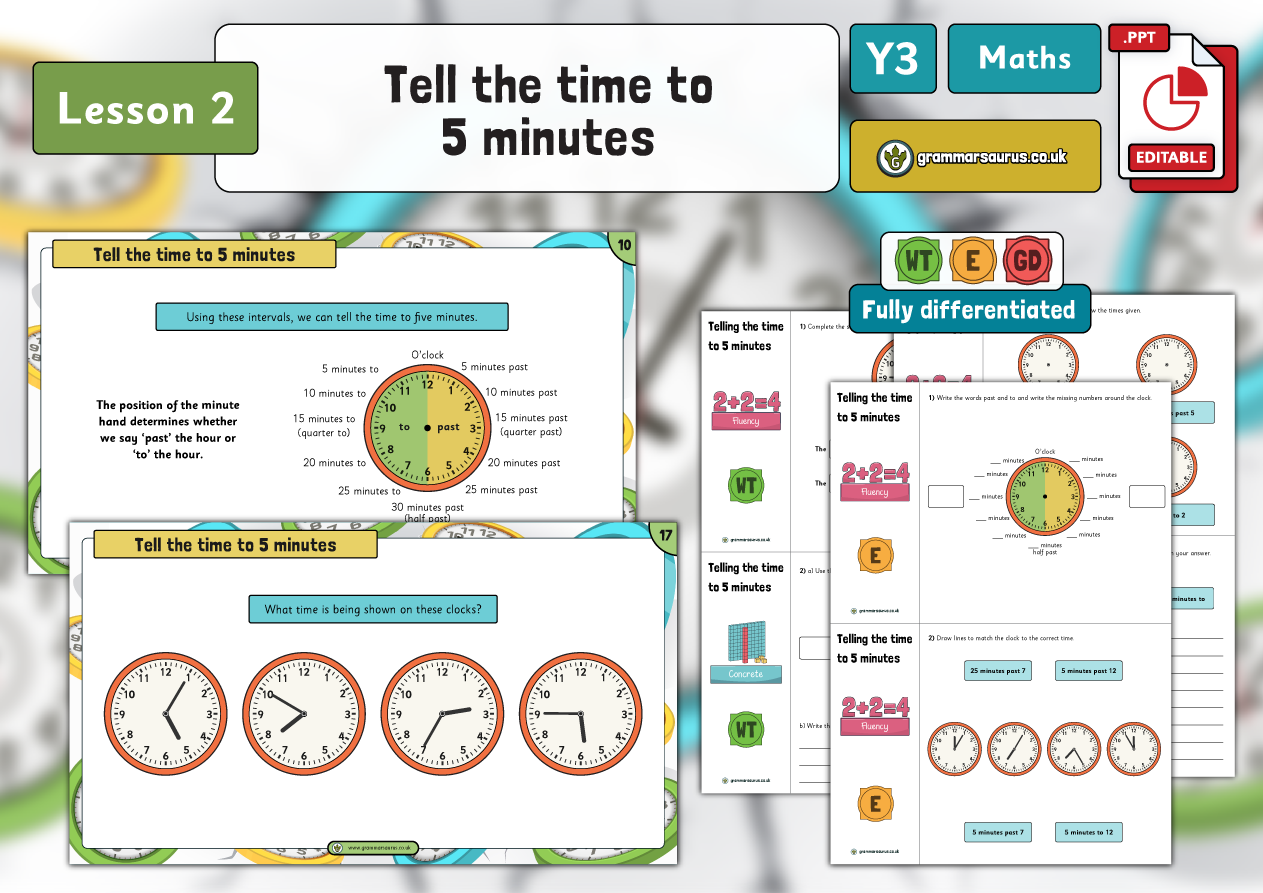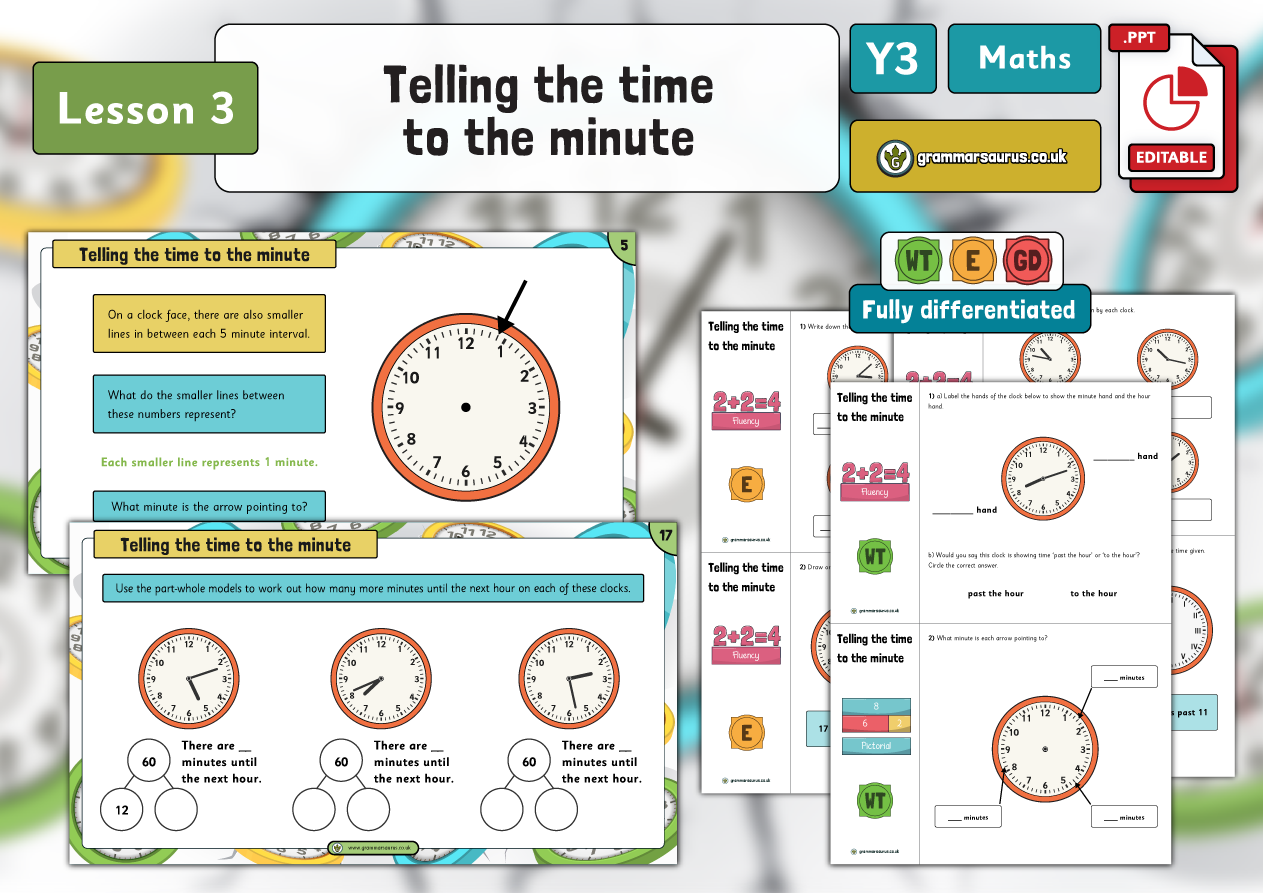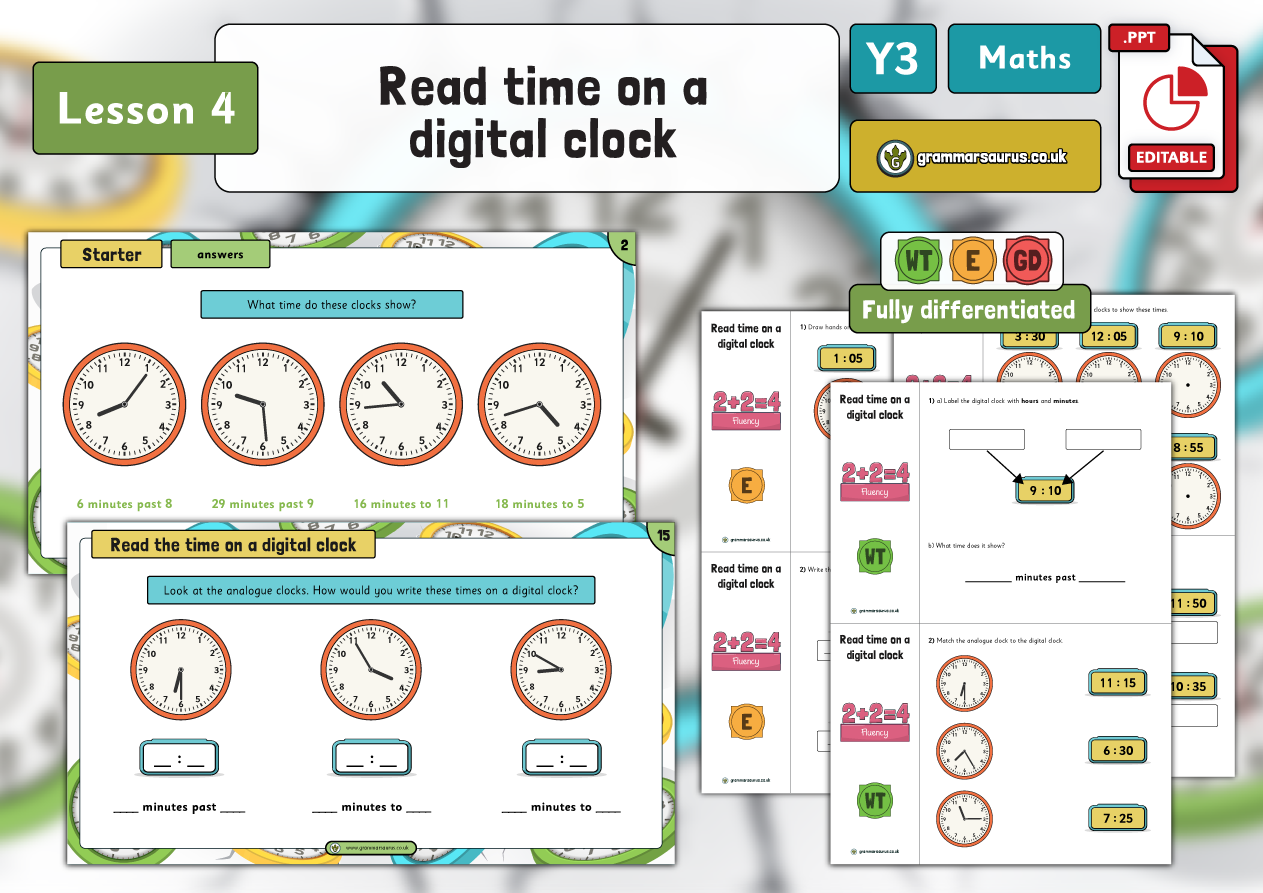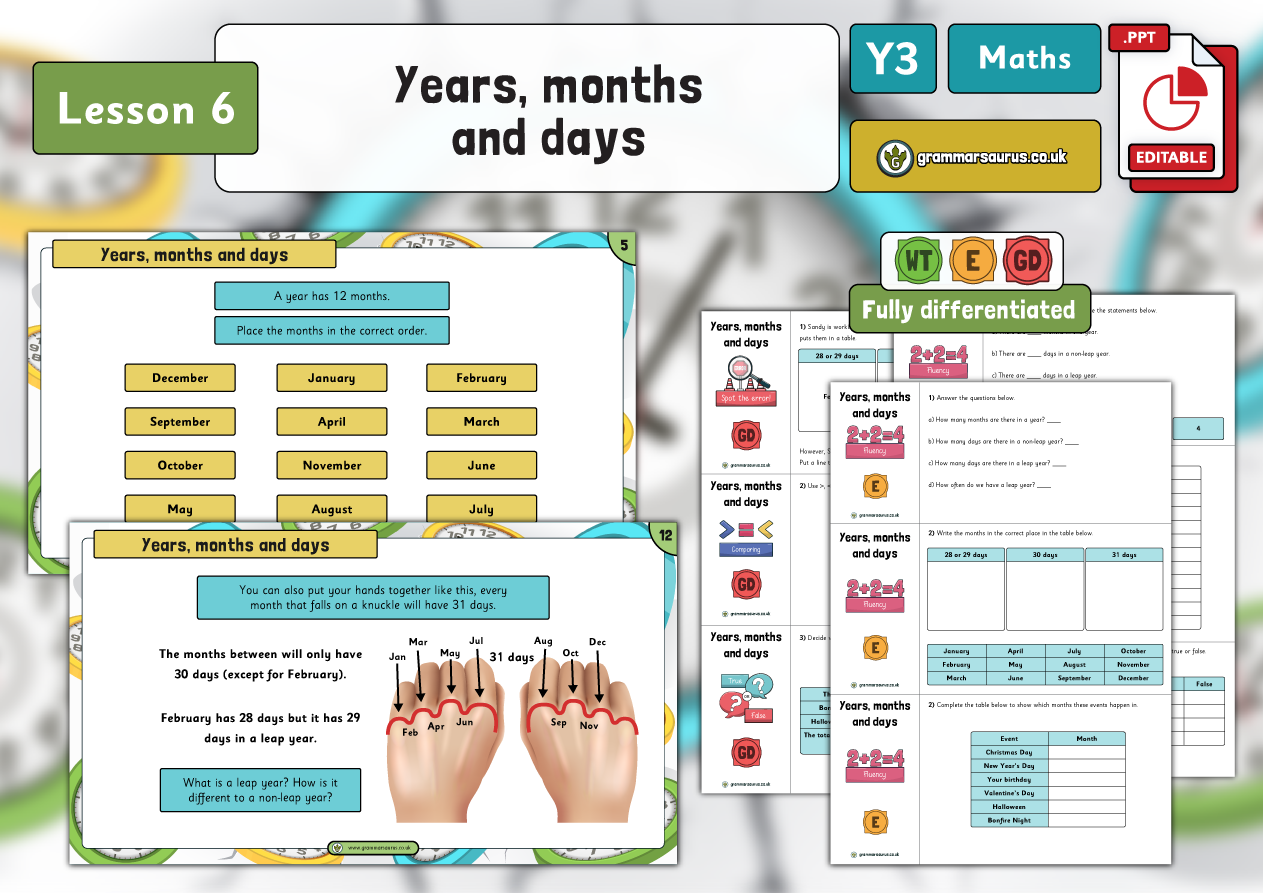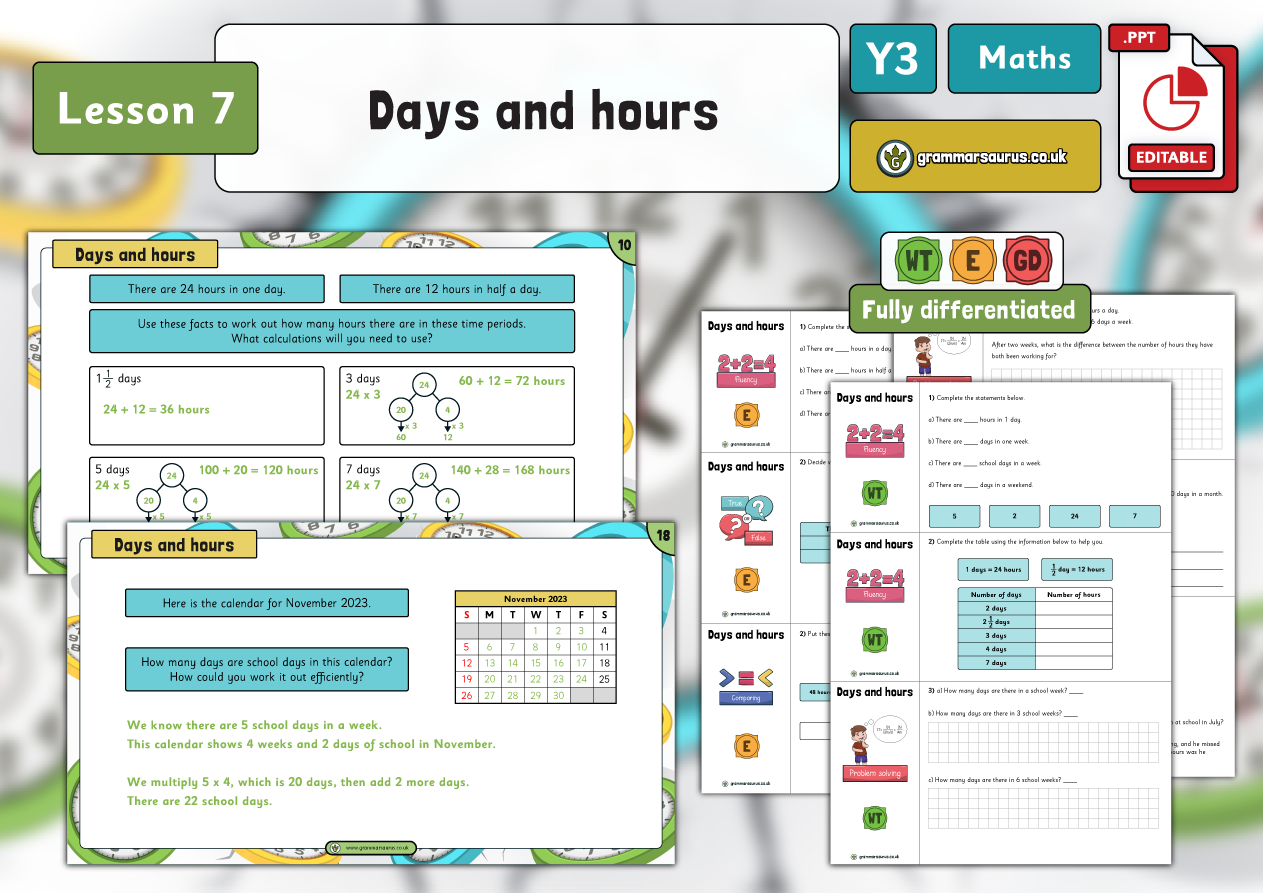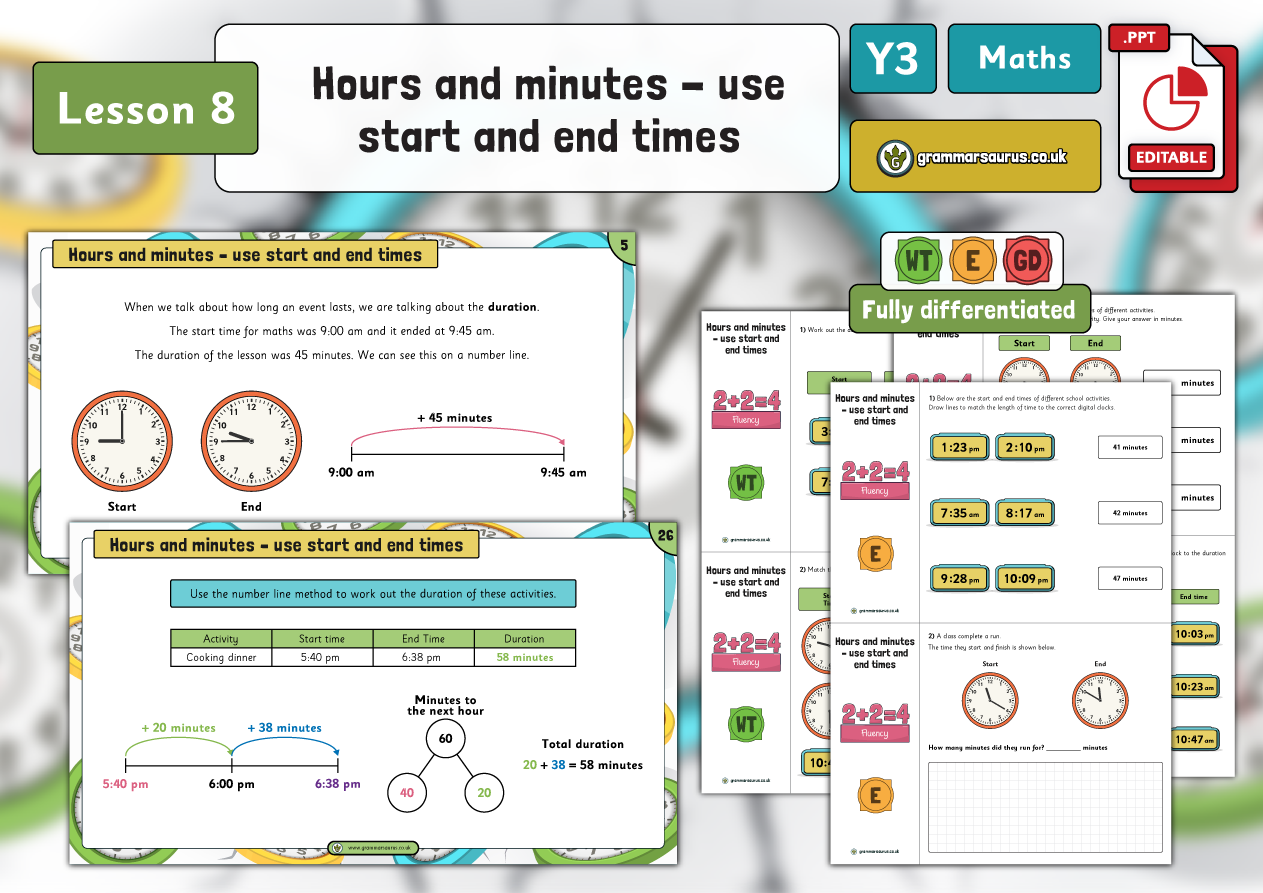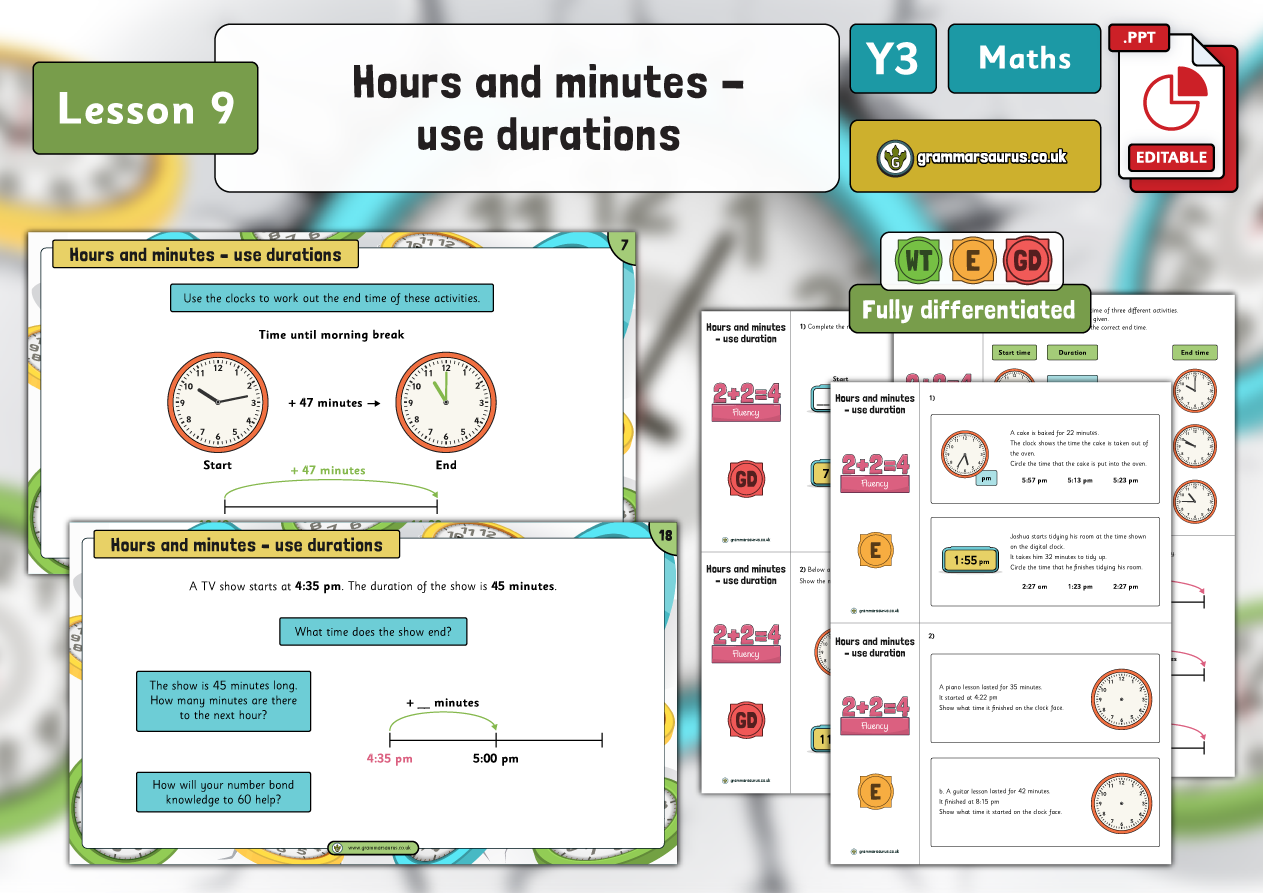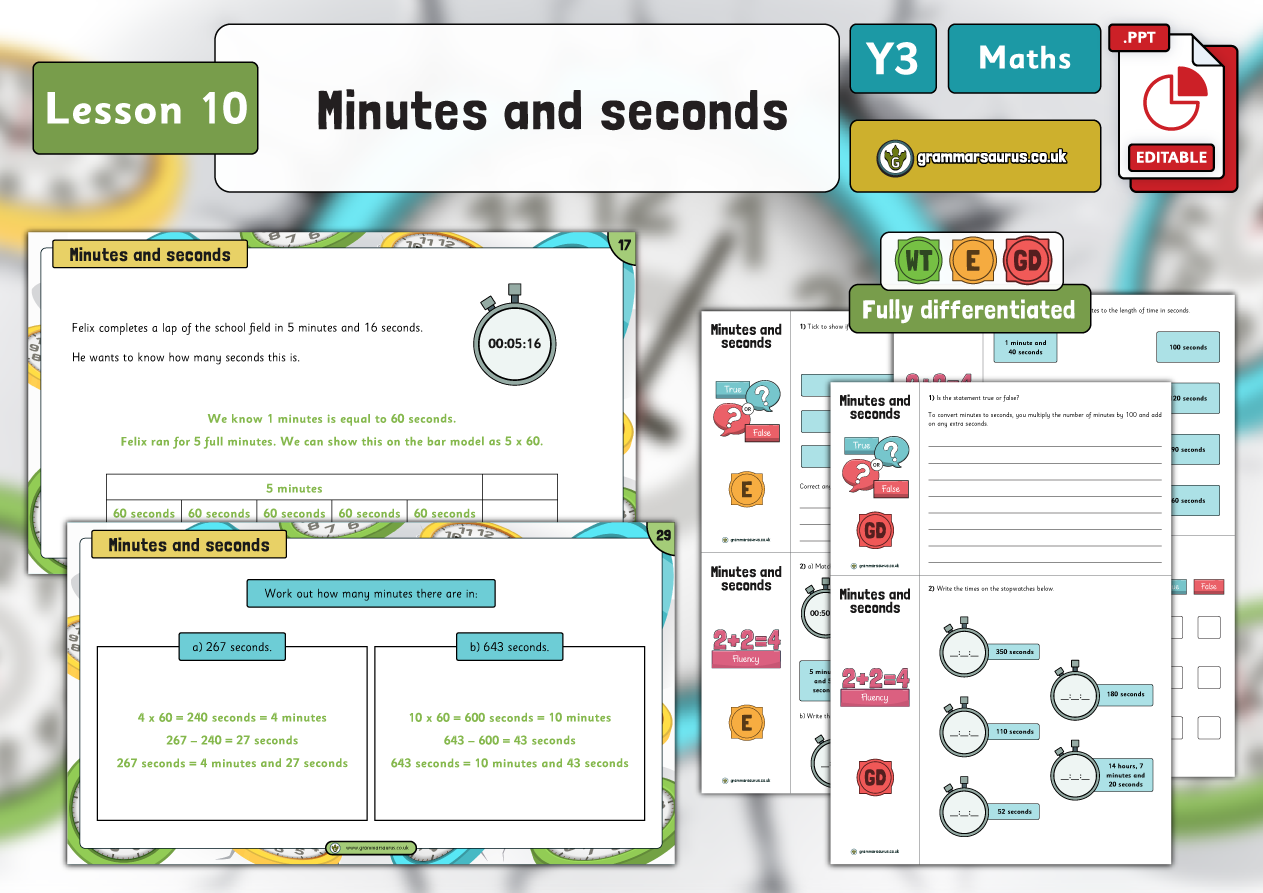Year 3 Time – Using am and pm – Lesson 5
Year 3 Time – Using am and pm – Lesson 5
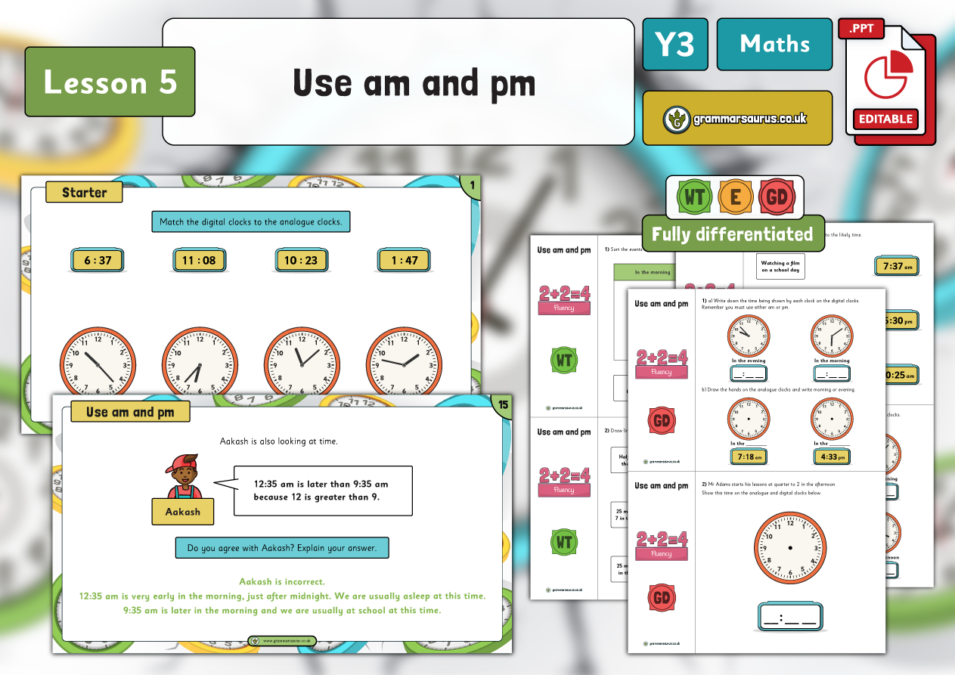
Downloads are for members of Grammarsaurus only.
Description
In this lesson, children begin to use ‘am’ and ‘pm’ to describe times of the day using both analogue and digital clocks. They learn that the day consists of 24 hours, 12 before midday and 12 after midday and use relatable activities to apply ‘am’ and ‘pm’ to time.
National Curriculum objectives:
Tell and write the time from an analogue clock, including using Roman numerals from I to XII, and 12-hour and 24-hour clocks
Estimate and read time with increasing accuracy to the nearest minute; record and compare time in terms of seconds, minutes and hours; use vocabulary such as o’clock, am/pm, morning, afternoon, noon and midnight
Differentiation:
There are three levels of differentiation in this pack: ‘working towards,’ ‘expected’ and ‘greater depth’.
Levels of this pack:
Age: 7-8...
Hello,
Downloads are for members of Grammarsaurus only.
Please sign up below or login if you are already a member.

